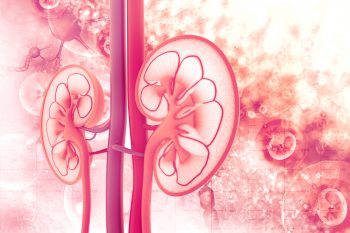
Washington, DC—There is no clear consensus on the optimal timing of initiation of dialysis in critically ill patients with acute kidney injury (AKI). Current practice focuses on analyzing survival outcome with arbitrary definitions of early or late start. However, there are few data available on the competing effects of other variables, including clinical comorbidities, dialysis indication, or acuity of illness.
Anirban Ganguli, MD, and colleagues at Medstar Washington Hospital Center, Washington, DC, conducted an analysis of new adult patients with AKI initiated on renal replacement therapy (RRT) while in the intensive care unit (ICU) from January 1, 2010, through December 31, 2015. The researchers sought to identify clinical variables associated with survival to hospital discharge. Analysis results were reported during a poster session at Kidney Week 2019 in a poster titled Impact of Clinical Variables at Dialysis Initiation for AKI in the ICU on In-Hospital Mortality.
A total of 235 patients initiated RRT in medical and surgical ICUs; of those, mean age was 61.8 years, 60% were male, and 47% were African-American. Charlson Comorbidity Score (CCS) was 5.5 and acuity scores were 29.6 (APACHE-II [Acute Physiology and Chronic Health Evaluation II]) and 12.0 (SOFA [Sequential Oran Failure Assessment]) at start of dialysis. Continuous RRT was the most common RRT modality (67.2%).
In logistic regression models, there was an independent association between survival and low serum lactate, low SOFA scores, elevated serum creatinine at initiation of RRT, and hyperkalemia. There was no association between survival and CCS and time from KDIGO (Kidney Disease Improving Global Outcomes) stage 3 AKI to dialysis initiation (as a surrogate for timing). There was an inverse correlation of serum lactate at initiation with survival beyond 48 hours.
Stratifying patients by SOFA scores at initiation of RRT (<10=low risk, ≥10=high risk) identified the severity of volume overload or hyperkalemia (low-risk group) and RRT modality type or serum lactate (high-risk group), as being associated with survival. Receiver-operator characteristics of biochemical variables at initiation of dialysis demonstrated that only serum lactate had a moderate c-statistic of 0.8759 in discriminating survivors from nonsurvivors.
“Data from critically ill AKI patients initiated on RRT in the ICU primarily showed acuity of illness at the start of RRT affecting survival. Since time from KDIGO stage 3 AKI to dialysis initiation was not associated with survival, the validity of definitions such as “early” or “late” RRT initiation remains uncertain. Triaging clinical decision based on acuity scores may optimize clinical outcomes. Finally, the absence of any association between hospital survival and comorbid scores has great implications for prognostication and palliative care,” the researchers said.
Source: Ganguli A, Adhikari S, Shah V, Sherman MJ, Veis JH, Moore, J. Impact of clinical variables at dialysis initiation for AKI in the ICU on in-hospital mortality. Abstract of a poster presented at the American Society of Nephrology Kidney Week (Abstract SA-PO144), November 9, 2019, Washington, DC.






 © 2025 Mashup Media, LLC, a Formedics Property. All Rights Reserved.
© 2025 Mashup Media, LLC, a Formedics Property. All Rights Reserved.